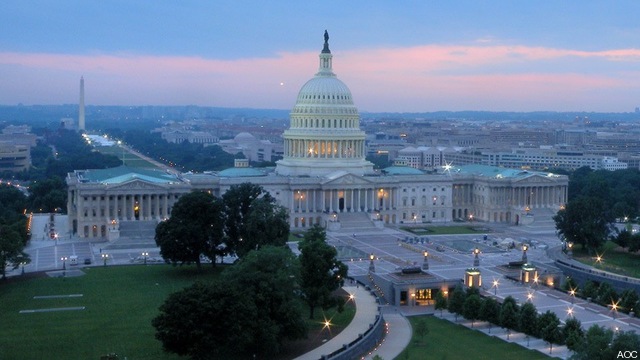
My vote in the 2012 presidential election will go to the candidate who most resists pandering to the American electorate. I say “most resist,” as all candidates pander, but hopefully at least one of the presidential candidates will believe and act as if there should be a limit.
Given the campaigns so far, perhaps there should a college-drinking-game-like requirement whereby every time a candidate uses the word “exceptional” or “exceptionalism” to describe America or US foreign policy, the nation should be required to watch a video of one Christmas-shopping American pepper-spraying another for 40% off an Xbox, an individual yelling out “let him die” in response to a Presidential-candidate debate question about helping another American without health insurance, and US leaders shaking hands with global despots when it serves American purposes. Increasingly, Americans are and America is, not so exceptionally, looking out after Number One.
Americans pride themselves on a history of being innovative, hard-working, caring individuals. Unfortunately, instances of actually demonstrating those attributes are becoming less and less frequent. As Andy Bacevich pointed out in his 2008 book, The Limits of Power: The End of American Exceptionalism, we are engorged in a crisis of our own making because “freedom” has come to mean a sense of entitlement for “more” of whatever we want, individually and collectively.
Domestically, that means a recession where 47″ flat screen televisions are considered as essentials, and a woman holding an iPhone asks captive passengers on the Boston MTA for $40 to buy her kids pizza for dinner “because they won’t eat that crap the food bank gives out.”
To quote Saturday Night Live’s Seth Meyers: “Really”?
In foreign policy it plays out as Republicans touting that the US can do whatever it wants to make sure that Americans get the “more” that they want; and Democrats
backing actions that result in much the same results, but then they require that we feel bad about it.
In defense, it means politicians rhetorically acknowledging that it is unsustainable for every global US interest to be seen as vital and every risk extreme, but then they don’t exhibit the political courage to follow through with a retrenchment plan that puts actions to rhetoric. For members of the military that will mean doing even more with even less; another unsustainable course. Some politicians even continue to see America’s role as that of global policeman while arguing for tax cuts. Meanwhile the Pentagon warns that every asset and weapon system are all that stands between Americans and “dire consequences.”
Worst of all are those who pander to the public with talk of American decline. Relative decline is unavoidable unless the rest of the world stands still economically and technologically; given that the US economy is tied to the world market, economic development abroad can be a boon for the US. The real decline America faces lies primarily in our ability to make good choices about our future.
It’s instructive to look at the disastrous results (falsely) attributed to President Jimmy Carter’s (falsely named) “malaise” speech in 1979. Carter’s poll numbers actually went up after the speech, and he never used the word “malaise” YET it is doubtful any candidate will ever be willing take a tough-love approach with the American public. That, however, is what is needed.
Every candidate is a parent, and every parent knows that while self-esteem is important for raising children – and yes, I’m saying Americans sometimes act like spoiled children — rules and structure is important too. But nobody has any patience for rules and structure if it means they have to give up something. American pride is quickly mutating into an unflattering sense of entitlement.
Instead of addressing this, politicians exploit and feed this grandiose sense of entitlement and self-esteem. When President Obama stated at the November 2011 Asia-Pacific Economic Cooperation conference in Hawaii that Americans were “a bit lazy” about seeking foreign investment, Republican candidates went into a frenzy, translating that into “Americans are lazy” and then having a field day stroking voters’ ego. Democrats are no better, suddenly enamored with killing terrorists around the world; drowning out their past cries to close GITMO and playing to the crowd instead.
In 2008, both candidate Obama and candidate McCain had the moral courage to tell voters in Ohio and Michigan that those jobs in the auto industry they were pining for weren’t coming back. That was a highpoint, as was John McCain telling a female supporter at one of his rallies that Barack Obama was not an Arab, as she claimed. The crowd rewarded his civility with boos.
The closest we’ve seen so far to a candidate willing to tell the American public to get a grip has been Newt Gingrich answering a question about federal student loans by suggesting that perhaps not everyone ought to go to college, especially if they can’t do basic math and write a full paragraph — a taboo view if all Americans are as special as they think they are.
Unquestionably, many Americans have been hit hard by the recession. That means that iPhones and flat screen televisions may have to wait until after food and utility bills are paid. And the McMansions that were purchased after cashing out the equity in mom and dad’s house and buying far above their means because they wanted to believe some sordid mortgage broker — those are gone too. Individuals and families who have been hit hard need help; and they need to get reasonable in their own expectations.
It also means that a tax hike is in order, maybe along the same order that Ronald Reagan raised taxes his second term. Cutting expenditures, military and discretionary, is in order, but the failure of the Super Committee proved that politics probably will trump reason when it comes to big cuts. There should be no free rides for anybody, rich or poor.
America is not in decline, as some people say it is, but it has lost its focus. Americans need to be driven by the same kind of transformational motivations that built infrastructures, a public education system, created jobs and invested in basic research to fuel innovation — rather than watching infrastructure crumble, public schools fail and grumbling about the Chinese taking manufacturing jobs from us. “Can do” must replace “give me.”
So it’s time to pull in the belt buckle and rebuild. But will any of the politicians have the courage to tell anybody that? I hope so.
Joan Johnson-Freese, a member of the AOL Board of Contributors, is an expert on US military space, Chinese space and the PLA. She is a professor at Naval War College and lecturer at Harvard University.






















